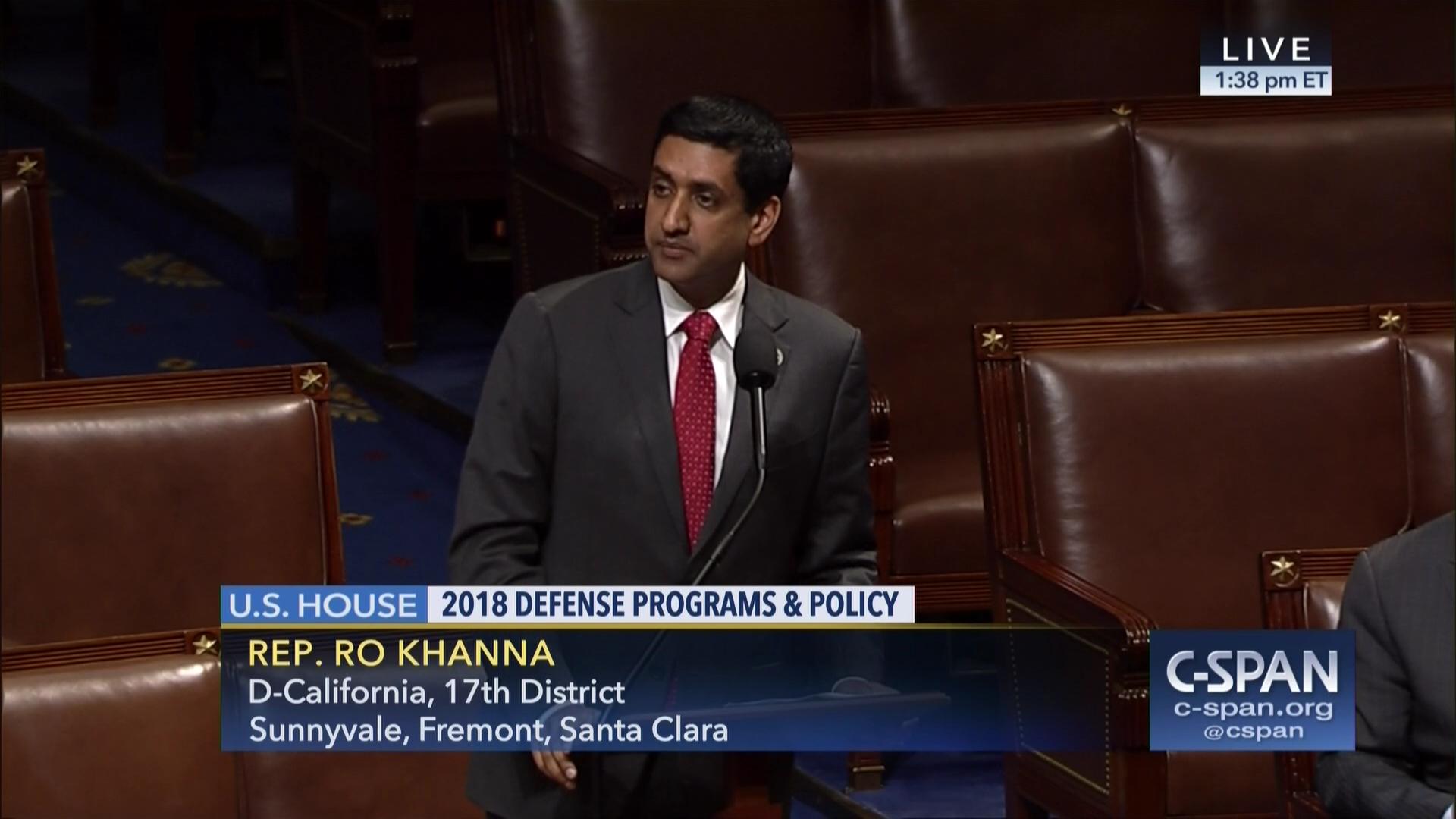by Giorgio Cafiero
The success of congressional Democrats, who took back control of the House of Representatives in yesterday’s midterm elections, poses new challenges for the White House. It will no longer have a Republican-dominated Congress to work with throughout the second half of President Donald Trump’s term. Although Democratic lawmakers will have limited means to change the administration’s foreign policy in the Middle East, especially with the Senate remaining in GOP hands, congressional pressure may impact Trump’s handling of the Yemen war, where Washington has backed Saudi Arabia and the United Arab Emirates (UAE)’s campaign against Houthi rebels since March 2015.
In the lead-up to this month’s elections, congressional opposition to the U.S. role in Yemen’s civil war steadily mounted. Although Democrats expressed the most outrage over the conflict, a growing number of Republican lawmakers such as Senators Bob Corker, Rand Paul, and Marco Rubio stated their concerns as the civilian death toll continued to rise, as had international condemnation of Riyadh and Abu Dhabi’s bombing campaigns.
In March, lawmakers on both sides of the partisan divide worked together to force the U.S. government to halt major cooperation with the Saudi-led coalition in Yemen. Although that effort failed, 44 senators voted to essentially end military aid to the Arab coalition in Yemen, suggesting that the Saudi and UAE narratives about the conflict do not enjoy a consensus of support among America’s elected officials.
Given the anger in Washington over the Jamal Khashoggi murder case, there is a real possibility that the Democrat-controlled House will be able to garner the votes to achieve what scores of lawmakers unsuccessfully sought to accomplish in March. The stakes are high regarding weapons sales to Saudi Arabia and the UAE. Any effort to cancel, delay, or freeze arms deals could undermine the White House’s “special relationships” with Crown Princes Mohammed bin Salman and Mohammed bin Zayed, the de facto rulers in Riyadh and Abu Dhabi who are at the helm of Saudi and Emirati foreign policy. At risk are pending Saudi and UAE purchases of the Terminal High Altitude Area Defense (THAAD) anti-missile defense system, the F-35 fifth generation fighter jets, and precision guided munitions.
Congressman Ro Khanna (D-CA) is driving efforts among House Democrats to push a War Powers Resolution that would require the U.S. military to cut off support to Riyadh’s coalition in Yemen. With Democrats to take control of the House of Representatives, Khanna and his congressional allies may well force a vote on the resolution next year.
Although U.S. support for the Saudi-led coalition began during Obama’s presidency, Trump’s predecessor put pressure—however selective and inadequate—on Riyadh and Abu Dhabi to change their actions in Yemen. The Trump administration, on the contrary, has fully endorsed Riyadh’s narrative that the Houthi rebels represent an extension of Tehran’s destabilizing hand in the tumultuous region, overlooking how Houthis have local grievances and that they began their revolt in 2004, when Iran was not a player in Yemen.
Trump has been keen to support increasingly hawkish Saudi and Emirati conduct in the region aimed at countering Iran’s expanding and consolidating influence. The Yemeni conflict and the country’s exacerbating humanitarian crisis have not only been absolutely devastating for millions of Yemenis, the war has also severely harmed U.S. national security interests and moral standing. Extremist factions such as al-Qaeda in the Arabian Peninsula and the Islamic State have been the only victors in the crisis. The Saudi-led coalition has failed to achieve its objectives in this bloody and expensive quagmire.
From the standpoint of many Democrats, Trump’s foreign policy has become too transactional. As Trump’s congressional opponents speak out about the president’s close ties with Saudi Arabia’s leadership amid the Khashoggi case’s fallout, the Washington-Riyadh relationship has become more of a domestic issue in the United States. In stark contrast to 2016, the issue of Yemen and Washington’s (partial) responsibility for the humanitarian disaster became an electoral talking point this year for Democratic candidates.
If the White House moves forward with lucrative arms deals to Riyadh and Abu Dhabi without the Arab Persian Gulf states first ending their bombing campaigns in Yemen, next year’s debates about the conflict are likely to be heated. Odds are good that the new House of Representatives will highlight the calamity in Yemen to put pressure on the administration to change course. Unquestionably, the outcome of yesterday’s election is unwelcome news in Riyadh and Abu Dhabi. Congress will be less willing to give the Saudis and Emiratis a blank check in Yemen. Indeed, led by newly emboldened Democrats, critics of Trump administration policy will be scrutinizing Saudi and UAE conduct more generally.






I will believe it when I see it. The pseudo left in Congress love arms sales abroad just as much as Trump does. If you pay these phonies enough to jump, they will ask “how high?” The US empire is a bi partisan affair.
As they had concluded that the Yemen war has no end but started to yield likes of Khashooghi that would start to backfire and reveal the ugly face of US alliance with autocracy so possibly they are going to do something.
No. They won’t. Believing anything else is like believing lucy will hold the football for charlie brown.
Are you kidding me? The Democrats are more ‘war mongering’ than the Republicans.
To Cretins Bezoar I would like to say this is not a Dem vs Rep head count, it is a vile, unGodly, assault on countries that have never attacked us, a cash cow for the MIC, a propagandic effort on the part of our government selling our illegal wars to ‘keep us safe’. If anything, it is fuel for Blowback for this disgusting, warmongering, greedy country that has forgotten its Constitutional responsibility to be for, of and by the people…and it’s time for us, again, to start singing loudly that “we, the people here don’t want a war”. And Blowback is what this country rightly deserves. I, most likely, will be among those killed as I don’t live far from a military base on the east coast…a very likely target. By the way, I’m a Democrat and an anti-war protester.